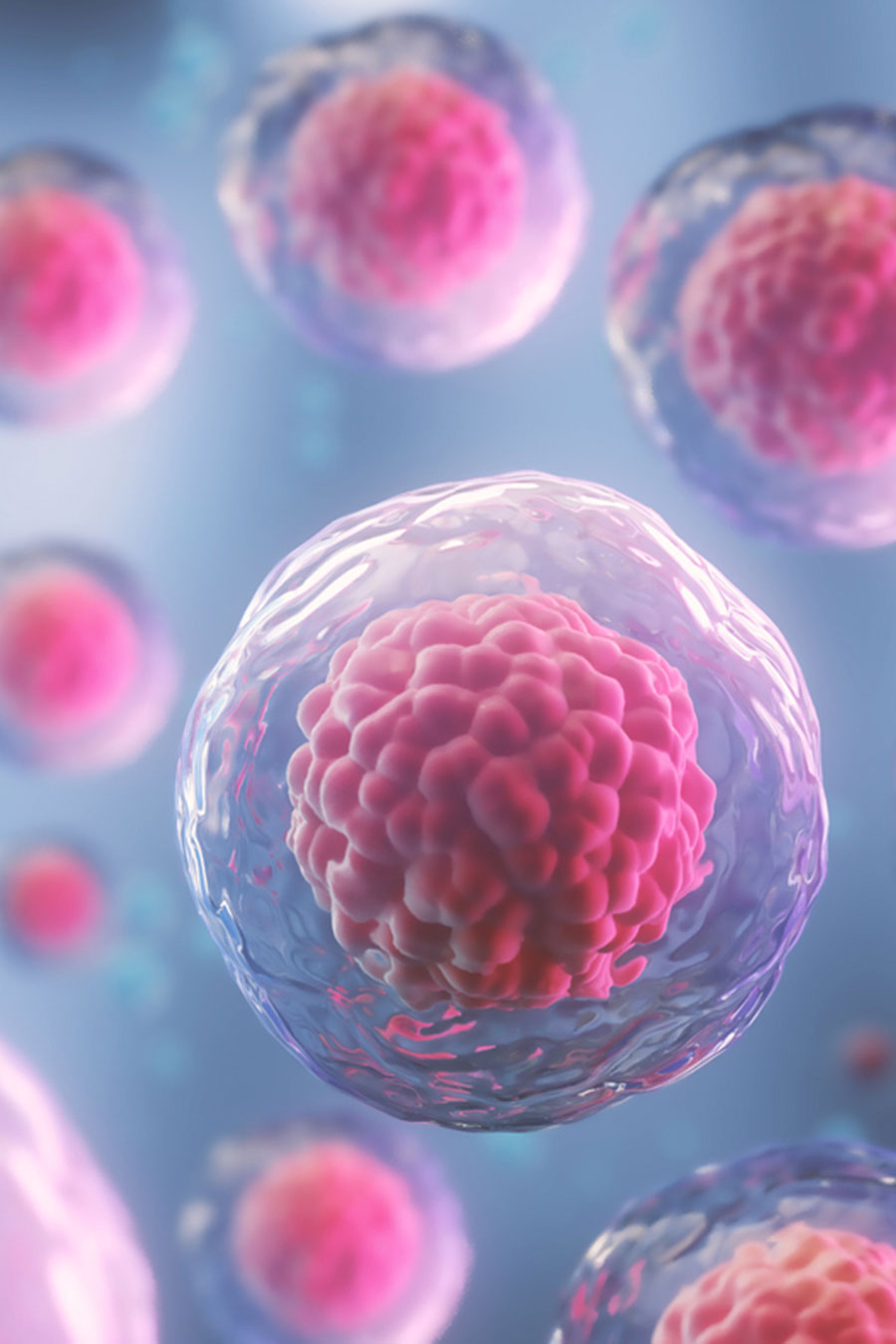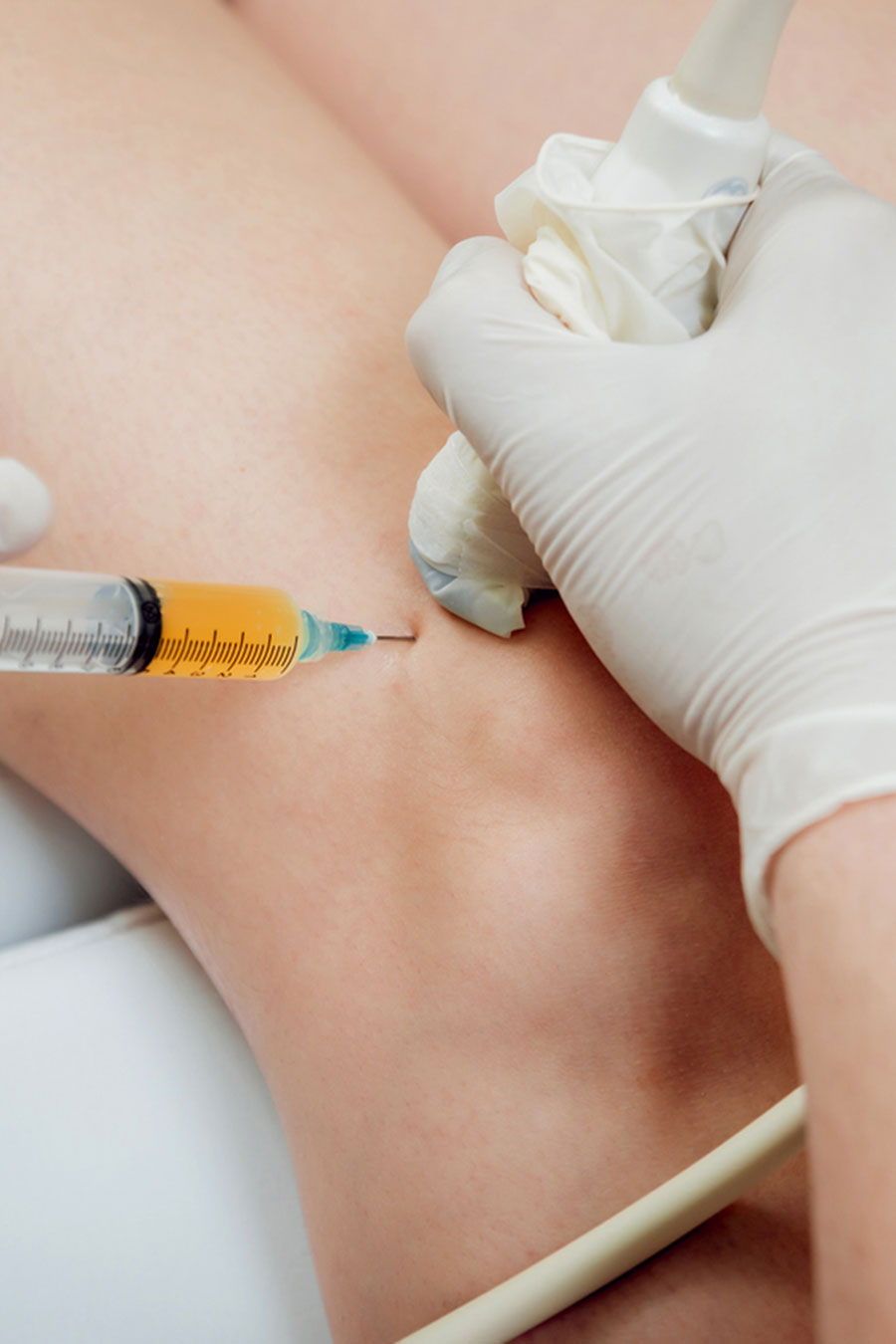
Stem Cell Treatments
for Buffalo, NY
What are stem cells?
Stem cells are the body's raw materials — cells from which all other cells with specialized functions are generated. Stem cells are undifferentiated, meaning that they can become any type of cell they need to become. Stem cells can further divide into daughter cells which can become either new stem cells or specialized cells (differentiation) with a more specific function, such as blood cells, brain cells, heart muscle cells, or bone cells. The cells use signals within the environment to become a more specialized cell. No other cell in the body has the natural ability to generate new cell types.
Why is there such an interest in stem cells?
Stem cells can increase understanding of how diseases occur. By observing stem cells, we can learn about diseases and we also know that stem cells can be used to treat many different diseases and conditions.
Many people may benefit from stem cells including those with osteoarthritis, tendon tears, spinal cord injuries, type 1 diabetes, Parkinson's disease, Alzheimer's disease, heart disease, stroke, burns, and cancer.
Where do stem cells come from?
There are several sources of stem cells:
Adult stem cells: These stem cells are found in small numbers in most adult tissues, such as bone marrow or fat. Compared with embryonic stem cells, adult stem cells have a more limited ability to give rise to various cells of the body.
Until recently, researchers thought adult stem cells could create only similar types of cells. For instance, researchers thought that stem cells residing in the bone marrow could give rise only to blood cells.
However, emerging evidence suggests that adult stem cells may be able to create various types of cells. For instance, bone marrow stem cells may be able to create bone or heart muscle cells.
Umbilical stem cells: The umbilical cord of a newborn is rich in mesenchymal stem cells (MSC). These stem cells have the ability to change into specialized cells and are considered immune privileged.
We know that Wharton’s jelly in the umbilical cord of a newborn is a rich source of stem cells. This is the gelatinous material that encases the umbilical blood vessels. Companies are receiving donated umbilical cords and extracting stem cells from the Wharton’s jelly, which can than be used for treatment.
Research studies show once injected, MSCs can differentiate into a wide range of specialized cells. They have the potential to develop into mature cells that produce fat, cartilage, bone, tendons, and muscle.
In the research and clinical trial setting, MSCs have exhibited remarkable immune and anti-inflammatory properties, avoiding Graft-versus-Host disease and other potential issues that come from using stem cells from a donor.
Because MSCs can differentiate - both in the lab and in a patient’s body - and secrete a wide variety of important proteins and growth factors, MSCs can be used to induce a patient’s own body to regenerate tissue, while protecting it from stress-induced cell death and modulating inflammation.
MSCs are being studied for degenerative conditions such as Alzheimer’s, ALS and Parkinson’s, autoimmune diseases, rheumatoid arthritis, lupus, Muscular Dystrophy (MD), Multiple Sclerosis (MS), diabetes, and vascular conditions like stroke in addition to heart disease.
These properties, in combination with their developmental plasticity, have generated tremendous interest because of the potential use of MSC in regenerative medicine.

What is stem cell therapy (regenerative medicine) and how does it work?
Stem cell therapy, a form of regenerative medicine, promotes the repair response of diseased, dysfunctional, or injured tissue using stem cells or their derivatives.
The specialized cells can then be implanted into a person. For instance, stem cells can be injected intraarticularly to help regenerate cartilage and soft tissue in patients with arthritis. For certain disease states, stem cells can also be given through intravenous infusion.
Contact Us for a Stem Cell Treatment
At Buffalo Regenerative Medicine, we are committed to the well-being of patients throughout Buffalo, Amherst, Clarence, NY, and the surrounding areas. We believe in the incredible potential of stem cell treatment to help address many difficult conditions; while in many ways we are still learning to unlock the possibilities of stem cells, in others we are already using them to change lives for the better.
If you think you may be a candidate for stem cell treatment or have questions about the therapy process, please contact our office to schedule a consultation with Dr. Cicchetti. She will meet with you directly to discuss your medical issues and concerns and help develop a treatment plan that is customized to your needs.
